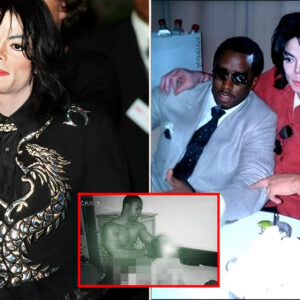Ashton Kutcher, the well-known actor and activist, has recently found himself embroiled in a controversy that has raised eyebrows and sparked intense debate on social media. Allegations have surfaced suggesting that Kutcher used his non-profit organizations as a shield to deflect attention away from the alleged crimes of music mogul Sean “Diddy” Combs. These claims have set off a firestorm, with many questioning the ethics of using charitable foundations as a means of protecting individuals from scrutiny, especially in light of serious accusations that have come to light against Diddy.

At the heart of this issue is Kutcher’s long-standing commitment to various philanthropic endeavors, most notably his work with Thorn, an organization he co-founded that focuses on combating human trafficking and online child exploitation. Kutcher has garnered widespread respect for his efforts in these areas, aiming to shed light on critical social issues and provide technological solutions to combat exploitation. However, the recent allegations suggest that his philanthropic work may have been compromised or manipulated to divert attention from the alleged misconducts surrounding Diddy, who has faced accusations ranging from sexual assault to other various forms of misconduct.
The implications of these allegations are profound, not just for Kutcher and Diddy but for the larger community of activists and philanthropists. Many advocates feel that when high-profile individuals are implicated in scandals, especially those related to crimes against vulnerable populations, it raises a significant moral question: Should the actions of one tarnish the work of many? Advocates for reform in charitable practices argue that the integrity of non-profit organizations must be maintained, and any suggestion that these entities are being used for nefarious purposes undermines the critical work they do.

Additionally, the fallout from this controversy has led to discussions around celebrity culture and accountability. Ashton Kutcher has long been viewed as a paragon of sincerity in the entertainment world, frequently using his platform to advocate for important social issues. The notion that he could be leveraging his charitable work to cloak the alleged transgressions of another celebrity casts a shadow on his previously unblemished reputation. Critics argue that this kind of behavior perpetuates a culture of impunity among the rich and famous, wherein wealth and influence can shield one from the repercussions of their actions.
In response to the allegations, Ashton Kutcher has remained relatively quiet, choosing to let the storm pass while focusing on his philanthropic work. However, his silence has led to increased scrutiny from both the press and the public. Many fans and followers are calling for greater transparency in his organizations, demanding clarity on how donations are used and whether they are, in any way, being employed to mitigate the reputational damage of individuals like Diddy. Advocates for greater accountability in philanthropic organizations emphasize that public trust is essential for charitable endeavors to thrive.

As discussions unfold, it is evident that the implications of these allegations extend beyond Kutcher and Diddy. They touch upon broader societal themes related to power dynamics, celebrity culture, and the ethical responsibilities of those who are in positions to influence social change. This controversy serves as a poignant reminder that when addressing serious social issues, transparency and accountability must remain at the forefront. Non-profit organizations should stand as bastions of integrity, unequivocally devoted to their missions without the cloud of scandal overshadowing their efforts.
In conclusion, while the full scope of Ashton Kutcher’s involvement in this controversy remains to be seen, it raises critical questions about the intersection of philanthropy and celebrity culture. As the story continues to evolve, the need for vigilance in maintaining ethical standards within the nonprofit sector has never been more pressing. Ultimately, it reinforces the idea that all public figures, regardless of their philanthropic inclinations, must be held accountable for their actions and associations, ensuring that their work does not become a mere façade for deeper issues beneath the surface.





